I want to have a regular expression that match anything that is not a correct mathematical number. the list below is a sample list as input for regex:
1
1.7654
-2.5
2-
2.
m
2..3
2....233..6
2.2.8
2--5
6-4-9
So the first three (in Bold) should not get selected and the rest should. This is a close topic to another post but because of it's negative nature, it is different.
I'm using R but any regular expression will do I guess. The following is the best shot in the mentioned post:
a <- c("1", "1.7654", "-2.5", "2-", "2.", "m", "2..3", "2....233..6", "2.2.8", "2--5", "6-4-9")
grep(pattern="(-?0[.]\\d+)|(-?[1-9]+\\d*([.]\\d+)?)|0$", x=a)
which outputs:
\[1\] 1 2 3 4 5 7 8 9 10 11
